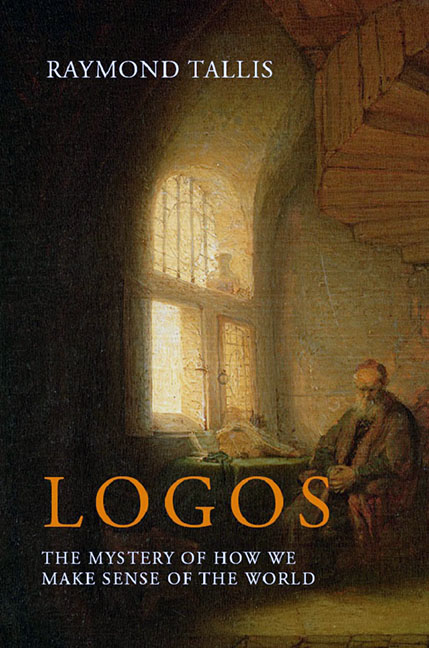Book contents
- Frontmatter
- Dedication
- Contents
- Acknowledgements
- Preface
- Overture
- 1 Seeing the sense-making animal
- 2 Logos: a brief backward glance
- 3 Deflating the mystery 1: putting the world inside the mind
- 4 Deflating the mystery 2: logos as bio-logos
- 5 The escape from subjectivity
- 6 Thatter: knowledge
- 7 Senselessness at the heart of sense
- 8 Towards a complete comprehension of the world?
- Coda
- Notes
- References
- Index
8 - Towards a complete comprehension of the world?
Published online by Cambridge University Press: 09 August 2023
- Frontmatter
- Dedication
- Contents
- Acknowledgements
- Preface
- Overture
- 1 Seeing the sense-making animal
- 2 Logos: a brief backward glance
- 3 Deflating the mystery 1: putting the world inside the mind
- 4 Deflating the mystery 2: logos as bio-logos
- 5 The escape from subjectivity
- 6 Thatter: knowledge
- 7 Senselessness at the heart of sense
- 8 Towards a complete comprehension of the world?
- Coda
- Notes
- References
- Index
Summary
We should not look down on the standpoint of theory as make-believe, for we can never do better than occupy the standpoint of one theory or another.
W. V. O. QuineWe began with Einstein's awestruck observation that the comprehensibility of the world is “an eternal mystery”. The reach of our understanding seems to be incomprehensible, especially in the light of what we know about ourselves. Attempts to eliminate the mystery by closing the gap between the comprehending mind and the world it comprehends proved unsatisfactory. Locating the world inside the mind (Chapter 3) and making the mind part of the material world (Chapter 4) were equally unconvincing. Indeed, the latter approach, which treated us as a piece of nature, and consequently an object of scientific knowledge, made even everyday knowledge, never mind higher-level understanding of the world, entirely incomprehensible. Our scientific image of the world and of our place in it does not seem to be able to accommodate the very faculties that we must have to form such an image.
In subsequent chapters, we identified reasons why we might expect the comprehensibility of the world, however impressive, to remain only partial, although it still exceeds what we might reasonably expect. The knowing subject proved to be a necessary condition of, as well as a constraint on, objective knowledge. Disinfecting cognition of the contamination of the subject (Chapter 5) would be close to being self-contradictory. Knowledge requires to be known by someone – an embodied someone: it is impossible to envisage what-is as having a subjectless view on itself. That someone, however, would always have access to the body of knowledge arrived at, and held in trust by, a vast community of minds. What is more, sense-making, and more specifically, knowing-that – “thatter” – requires a distance between mind and the world it comprehends (Chapter 6). Given that knowledge is a relationship between two independent relata – the knower and the known – the conformity of the latter to the former is deeply problematic. Indeed, the standing of the object of knowledge as an object – distinct from what is known – implies that it should have a residual, irreducible opacity; that there should be something senseless at its heart compounding the opacity of the embodied subject (Chapter 7).
- Type
- Chapter
- Information
- LogosThe Mystery of How We Make Sense of the World, pp. 185 - 206Publisher: Agenda PublishingPrint publication year: 2018



